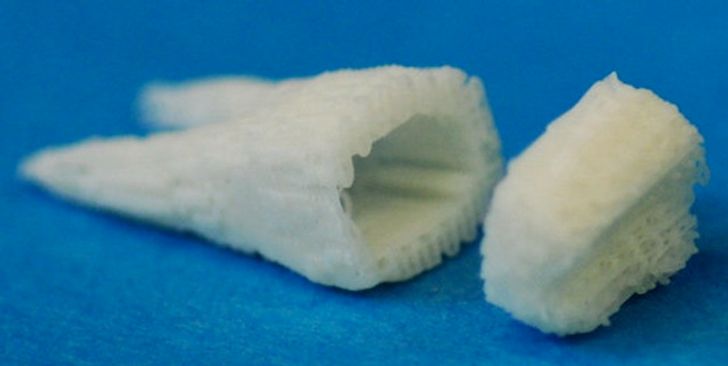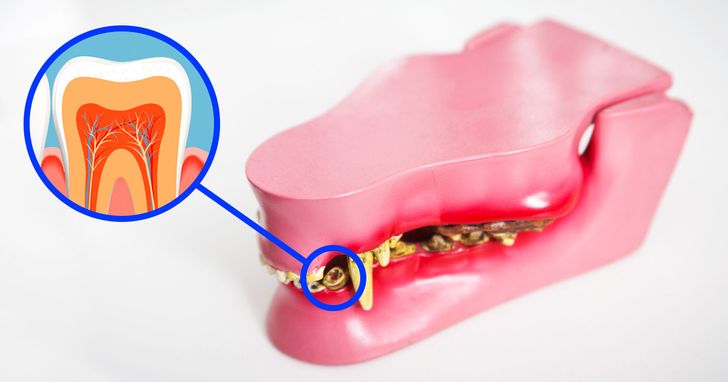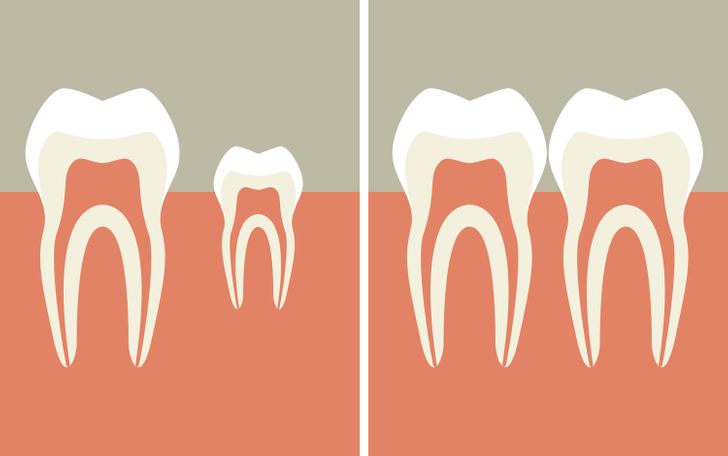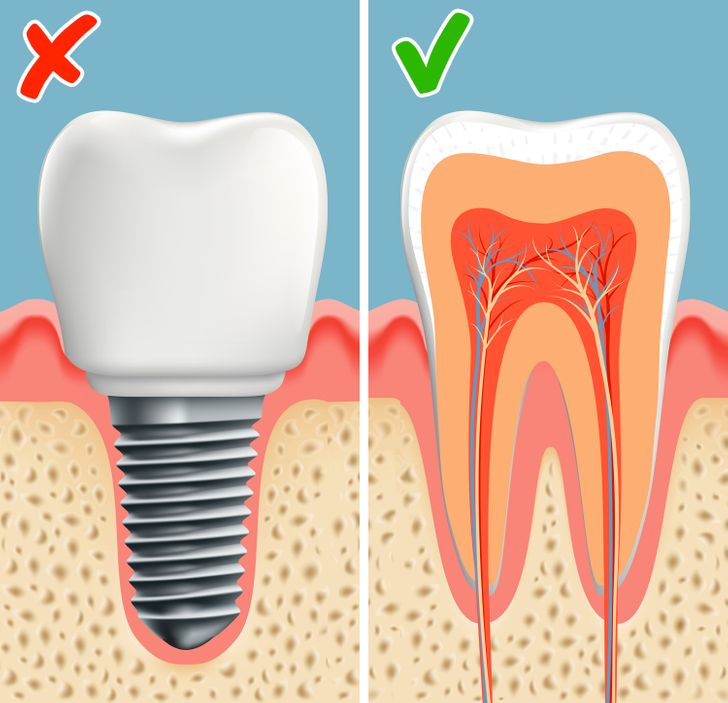Reflect on the classic experiment in which hen epithlial cells were induced to form teeth by growth factors from rodent mesenchymal cells. See hen's teeth and horse's toes.
Scientists Found a Way to Regrow Teeth in 2 Months
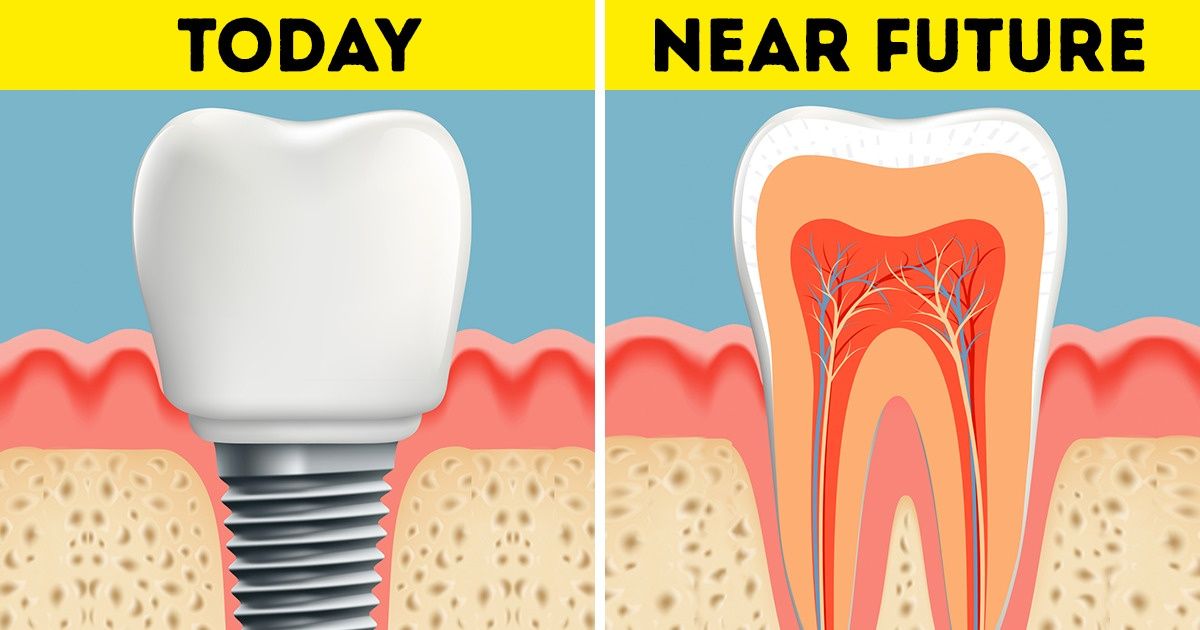
Losing teeth as an adult can be scary to think about, but it’s an issue that many people face. Over a quarter of adults lose all their teeth by the age of 74. While dental implants can help, they can be really uncomfortable, especially since they don’t adapt to the mouth as it ages. However, a new technique might help people to grow new teeth in just 9 weeks using the patient’s own adult stem cells.
We at Bright Side are always on the lookout for breakthroughs in health and science that might just end up helping us someday.
Researchers from New York City’s Columbia University Medical Center hope that they can get a patient’s own stem cells to grow an anatomically correct tooth. In addition to that, if they can pull it off, the new tooth will actually grow in a person’s empty socket, even allowing it to merge with the surrounding gum tissue. They’ve already proven the ability to grow the teeth, though not in humans yet.
According to the Journal of Dental Research, the researchers conducted an experiment using 22 rats. After growth factors were implanted in the rats’ mouths, new bone material regenerated and integrated within 9 weeks. According to the researchers, this is the first time teeth-like structures have been regenerated in a living organism.
If this treatment proves successful in humans, there can be a variety of benefits that come along with the new procedure. Since the tooth is grown in the socket where it will stay, there is also no need to harvest outside stem cells or create an outside environment for the tooth as it grows. Because of this, researchers hope that this will be a more cost-effective solution for patients who can’t afford dental implants. In addition, since the tooth grows right in the mouth, there will likely be less recovery time and it will be less likely for teeth to fail.
For the time being, however, dental implants are the closest thing we have to help people replace lost teeth. Unfortunately, implants can be painful, require a long healing process, and don’t often adapt to aging mouths, which can cause the implant to fail altogether. That said, this new alternative might become a reality quite soon. Even now, Columbia University has filed patent applications for this new technology and is also looking at ways to make the process commercially available.
Do you think this new procedure will end up helping a lot of people in the long run? Do you hope this technology arrives soon? Let us know in the comments!
Comments
The faster it gets approved the better ! I’ll be Firth’s to sign up !!
If they can succeed in this, then sign me up.. would be a way cheaper solution than getting dental implants, and im sure not everyone would want some metal in their gums.
Thanks a lot for sharing this news. I recently read an article at lifestyledental.co.uk which explains details about this invention.
yes do it fast i am waiting for this. mujhe implant se bahut dar lag raha hai. a yeh mere state mein aplicablr hasakta hai.reply as soon as fast
Related Reads
11 People Who Chose Kindness Over Looking Away

My In-Laws Forced Me to Leave My Vacation Early—They Crossed Every Line

12 Moments Where Empathy Showed the Power of a Kind Heart

I Refused to Pay for Our Valentine’s Dinner—Then I Learned the Heartbreaking Truth

15 Moments That Prove Quiet Kindness Doesn’t Break, Even When We Do

12 Moments That Show Romance Is Really About Small Acts of Kindness

12 Life Moments Where Quiet Kindness Played the Main Role

10 Stories That Show What Happens When You Stop Being the Family ATM

I Refuse to Earn Pennies While My Manager Cashes a Fortune

My MIL Tried to Humiliate Me at the Altar—By Morning, She Wasn’t Laughing

12 People Who Turned an Awkward Situation Into a Kind Gesture

11 Stories of Stepparents Who Chose Kindness Through Tough Times

